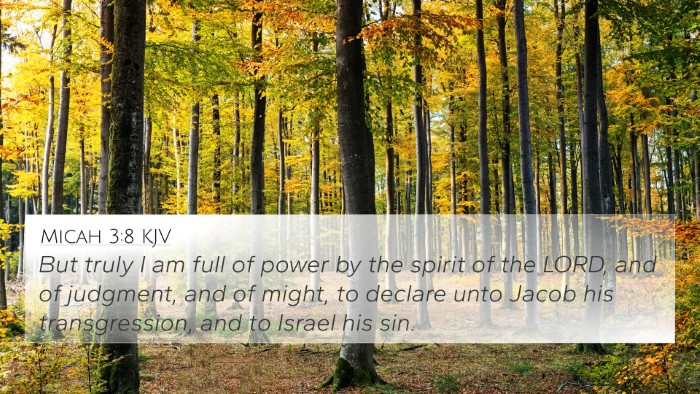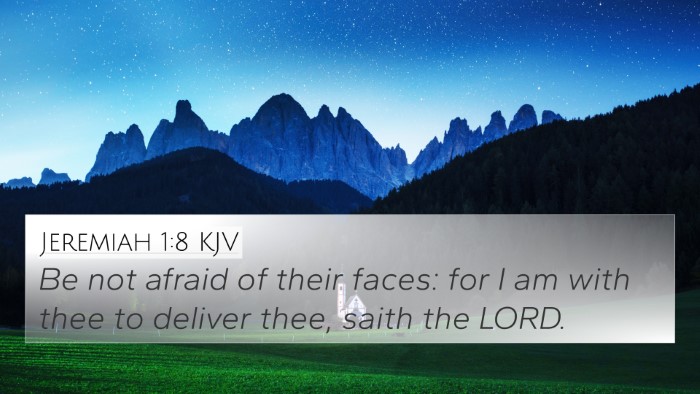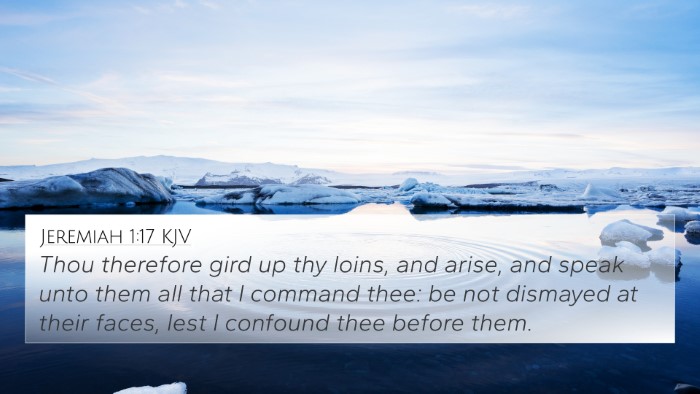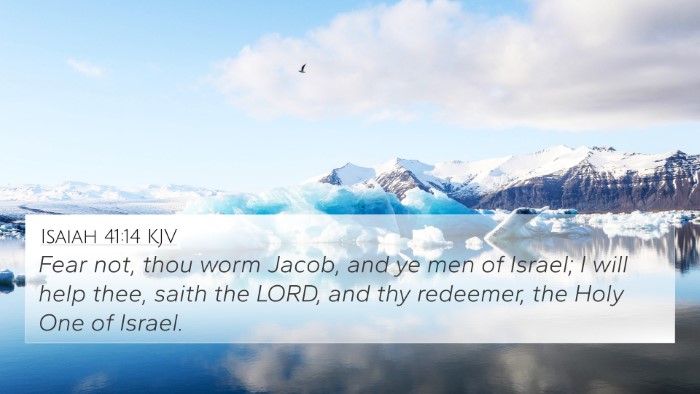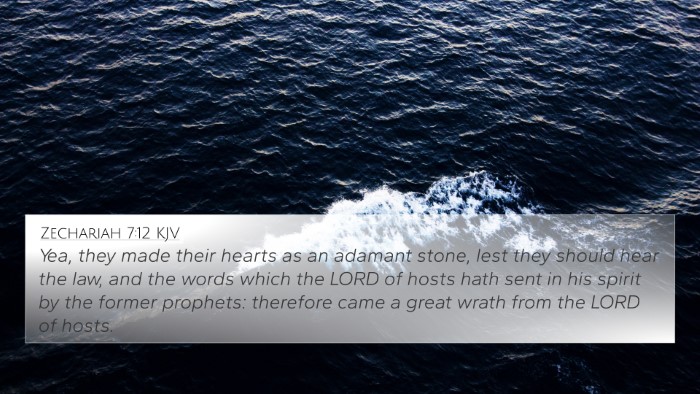Ezekiel 3:9 - Meaning and Interpretation
Ezekiel 3:9 states: "As an adamant harder than flint have I made thy forehead: fear them not, neither be dismayed at their looks, though they be a rebellious house." This verse provides profound insights into the calling and empowerment of the prophet Ezekiel in the face of adversity and challenge.
Summary of Insights from Public Domain Commentaries
Matthew Henry's Commentary
Henry remarks on the strength of God's promise to make Ezekiel's forehead as hard as flint. This signifies not only the resilience needed to face a 'rebellious house' but also reflects God's assurance of protection against their opposition. It emphasizes the necessity of boldness in delivering God's message, as Ezekiel would encounter stiff opposition and resistance.
Albert Barnes' Notes on the Bible
Barnes explains that the metaphor of making Ezekiel's forehead adamantine highlights the enduring strength that God grants to His servants. This hardness symbolizes Ezekiel's commitment to proclaim God's word without fear, regardless of the opposition he might face. It reinforces the idea that God's chosen messengers are equipped to withstand intense scrutiny and refusal.
Adam Clarke's Commentary
Clarke adds that the hardness of the forehead signifies a defense mechanism against the violence and hostility from the people of Israel. It presents the idea of spiritual fortitude, showing that God bestows unwavering resolve to His prophets so they can perform their sacred duty amidst rebellion.
Key Themes and Application
This verse serves as a reminder of the call to courage and steadfastness in fulfilling God’s mission. It underscores the importance of spiritual resilience when facing rejection or opposition. The imagery of a hard forehead can be seen as a call to have a strong identity rooted in God’s word, which provides confidence and boldness in preaching the truth.
Cross-References to Ezekiel 3:9
- Ezekiel 2:6-7: This passage sets the stage for Ezekiel's mission, highlighting the rebellious nature of the people and God's command to speak faithfully despite their defiance.
- Jeremiah 1:18-19: God assures Jeremiah of his protection in the face of adversaries, as He made Jeremiah a fortified city—a concept reechoed in Ezekiel's calling.
- Isaiah 50:7: Similar courage is shown in Isaiah's prophetic ministry, where he sets his face like flint against the opposition.
- Matthew 10:16: Jesus advises His disciples to be wise as serpents and innocent as doves, demonstrating the need for discernment and courage in sharing the gospel.
- Acts 4:29-31: The apostles pray for boldness in preaching despite threats, a practice that mirrors Ezekiel's experience with a stiff-necked generation.
- Romans 1:16: Paul expresses the necessity of living unashamedly for the gospel, akin to Ezekiel's unwavering commitment to his prophetic role.
- 2 Timothy 1:7: Paul reminds Timothy that God gives a spirit not of fear, but of power and love, aligning with the empowering message to Ezekiel.
- Revelation 2:10: The call to remain faithful amid tribulation showcases the enduring need for believers to withstand opposition, much like Ezekiel's task.
- 1 Corinthians 16:13: Paul instructs believers to stand firm in faith, paralleling the steadfastness expected of Ezekiel.
- Philippians 1:28: The encouragement to not be frightened by adversaries reflects the courage and resilience exhibited in Ezekiel's ministry.
Conclusion
Ezekiel 3:9 emphasizes God’s provision of strength and resilience for His servants. The connections between this verse and other scriptures illustrate a consistent biblical theme: believers are called to unwavering commitment in the face of opposition, equipped by God to fulfill their mission. Understanding these links enhances our appreciation of God's support for those who speak His truths.
Tools and Methods for Bible Cross-Referencing
For those interested in exploring these connections further, various tools and methods can assist in cross-referencing Biblical texts:
- Bible Concordance: A comprehensive index that allows users to find verses by specific words or themes.
- Bible Cross-Reference Guide: Designed specifically to highlight connections between verses and themes in Scripture.
- Cross-Reference Bible Study: Methods and materials to engage in detailed study and understanding of Scripture connections.
- Bible Chain References: A system of linking verses logically and thematically to deepen understanding of Biblical narratives.
- How to Use Bible Cross-References: Techniques for effectively finding and analyzing related verses for deeper comprehension.
Exploring the connections between Bible verses, such as those found in Ezekiel 3:9, enhances understanding and provides rich insights into the resilience expected of God's messengers throughout all Scripture.






